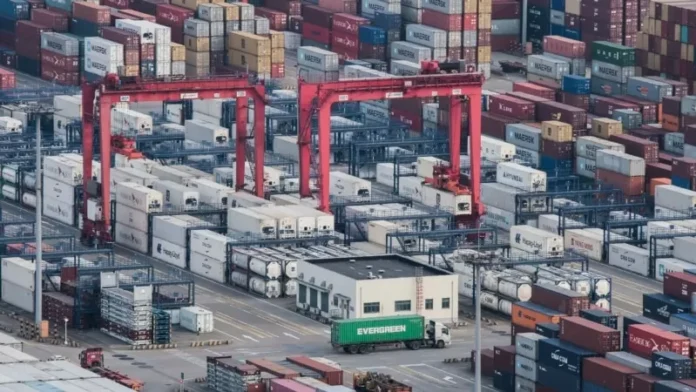Beijing – China’s Ministry of Commerce announced on Sunday that it has launched an anti-dumping investigation into POM copolymers, a type of engineering plastic, imported from the European Union, United States, Japan, and Taiwan.
According to the ministry, POM copolymers have the potential to partially replace metals such as copper and zinc and are widely used in various industries such as auto parts, electronics, and medical equipment. The investigation is expected to be completed within a year, with a possibility of extension for an additional six months.
The European Commission, which oversees EU trade policy, responded to the investigation by stating that it will carefully review the details of the probe before making any decisions. “We expect China to ensure that this investigation is conducted in accordance with all relevant rules and obligations of the World Trade Organization,” a spokesperson said.
This move by China comes amidst a larger trade dispute with the United States and Europe. Just a few days ago, the US announced significant tariff increases on Chinese imports such as electric vehicles, computer chips, and medical products. In response, the European Union has launched its own trade investigation into Chinese tinplate steel, adding to a series of previous EU probes into Chinese exports.
One of the most notable trade investigations by the EU was launched last September to determine whether or not to impose punitive tariffs on Chinese electric vehicles. The EU suspects that these vehicles are receiving government subsidies, giving them an unfair advantage in the market. However, Beijing argues that the recent focus on China’s excess capacity by the US and Europe is misguided.
Chinese officials believe that the criticism overlooks the innovations made by Chinese companies in key industries and exaggerates the role of state support in driving their growth. China has been investing heavily in research and development, leading to a surge in technological advancements and innovations.
The country’s rapid economic growth and development have caused concern among its trading partners, leading to accusations of unfair trade practices and the use of government subsidies. However, China maintains that its economic policies are in line with international trade rules and regulations.
The investigation into POM copolymers is a step towards ensuring fair trade practices and promoting healthy competition in the global market. It also shows China’s commitment to upholding the rules of the WTO and resolving trade disputes through proper channels.
The use of POM copolymers has been growing rapidly in recent years due to their versatility and cost-effectiveness. They have become an essential component in many industries, especially in the automotive and electronics sectors. Therefore, it is crucial to ensure that fair trade practices are followed to prevent any harm to the market and to protect the interests of all parties involved.
China’s decision to initiate the investigation should not be seen as a hostile move, but rather as a responsible and necessary step to maintain a fair and balanced trade environment. As the world’s second-largest economy, China has a significant role to play in promoting global trade and economic growth. By addressing trade disputes through proper channels and adhering to international trade rules, China is setting an example for other countries to follow.
In conclusion, China’s anti-dumping probe into POM copolymers is a positive step towards promoting fair trade practices and fostering healthy competition in the global market. It reflects the country’s commitment to upholding the rules and regulations of the WTO and resolving trade disputes through peaceful means. As China continues to grow and develop, it is essential for all parties to work together to create a level playing field for fair and mutually beneficial trade.

